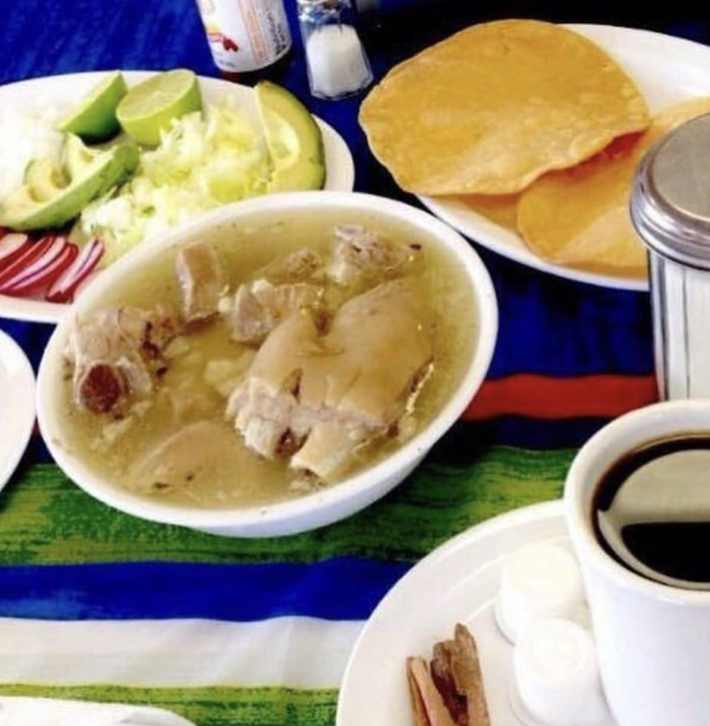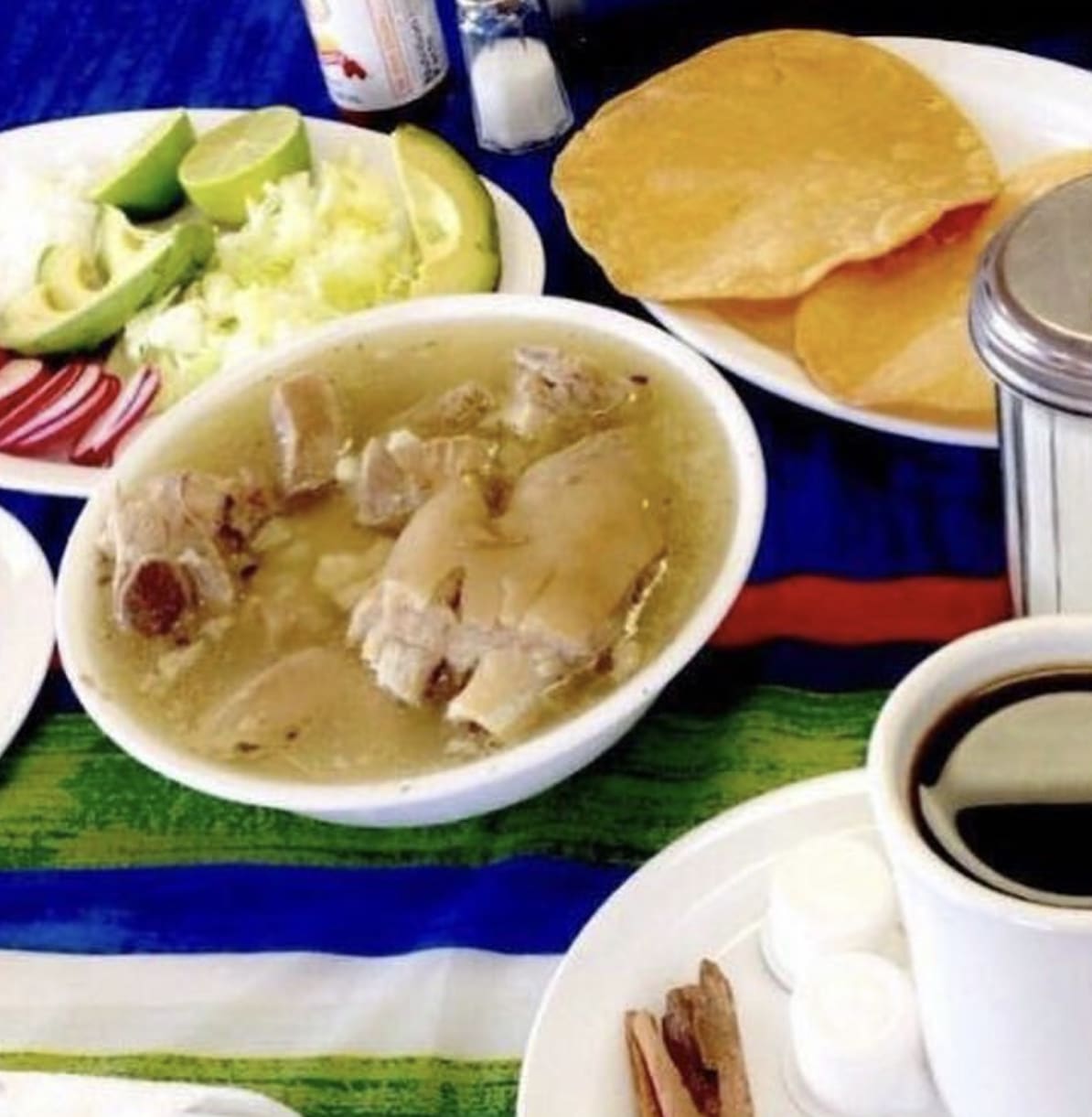Welcome to L.A. Taco’s Pozole Week! Every day this week, we will celebrate a different style of the hominy and meat stew that really hits the spot when it is cold out, and share some delicious spots in Los Angeles to try it. For our third day, we are celebrating pozole blanco, the minimalist variation of the hominy and meat stew that uses no—or very little—chiles and spices. Grab a bowl and join us.
[dropcap size=big]P[/dropcap]ozole season is nigh.
Studies show that around this time fridges in Mexican households are a game of chance. Margarine container? No. It’s pozole. Sour cream? Nope. You ran out three weeks ago, it’s pozole. Again.
Pozole is a dish that’s usually associated with celebrations, gatherings, and holidays. That’s an improvement (depending on who you ask of course) considering that the origins of the dish used to call for four portions of human meat.
Pozole comes from the Nahuatl word pozolli which translates to “frothy” or “boiled” and was a ceremonial dish. According to Fray Bernardino de Sahagún, in the 1500s, he saw the human-meat-stew (then known as tlapozonalli) offered to Moctezuma at a festival honoring the sun god. But the protein eventually changed to pork because it is rumored to taste similar— effectively destroying the human meat economy. The pre-hispanic dish is one of the most popular dishes in Mexican gastronomy. There are several iterations throughout Mexico: red, green, and white. The differences are seen regionally through variance in proteins, spices, and chiles.
Each pozole on the list has its own distinct identity.
There is no better dish that signals the end of the year better than pozole. The bounty of pozole housed in a huge pot is a symbol of unity in my family. There is always enough for everyone.
Blanco
Guajillo
This neighborhood spot is great for breakfast, but on weekends they offer white pozole. The pozole is made with pata (pork feet) which means some of the collagen renders into the broth. But not to the point of noticeable thickness. The pozole is served with plenty of accoutrements: onions, cilantro, tostadas, avocado slices, rabanos, oregano, lettuce, and a specially tailored red salsa to crank up the heat. The floating bits of avocados offer a nice creamy texture that pairs so pleasantly with the chunks of pork. The grano is on the tougher side, call it al dente. If you have the inclination to order a huarache with carnitas, I’d urge you to follow that intuition.
6480 Santa Fe Ave, Huntington Park, CA 90255. (323) 835-6424.








